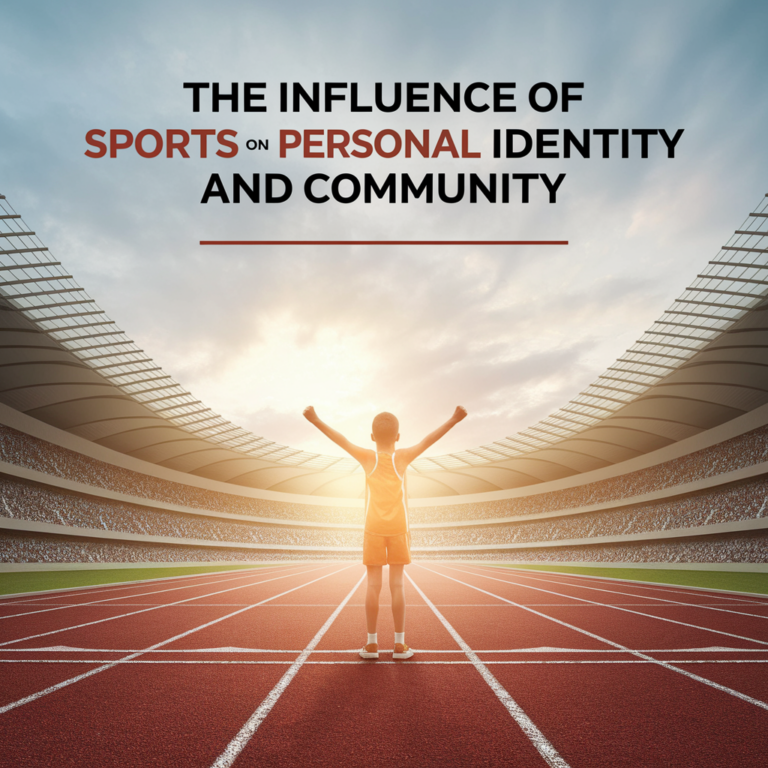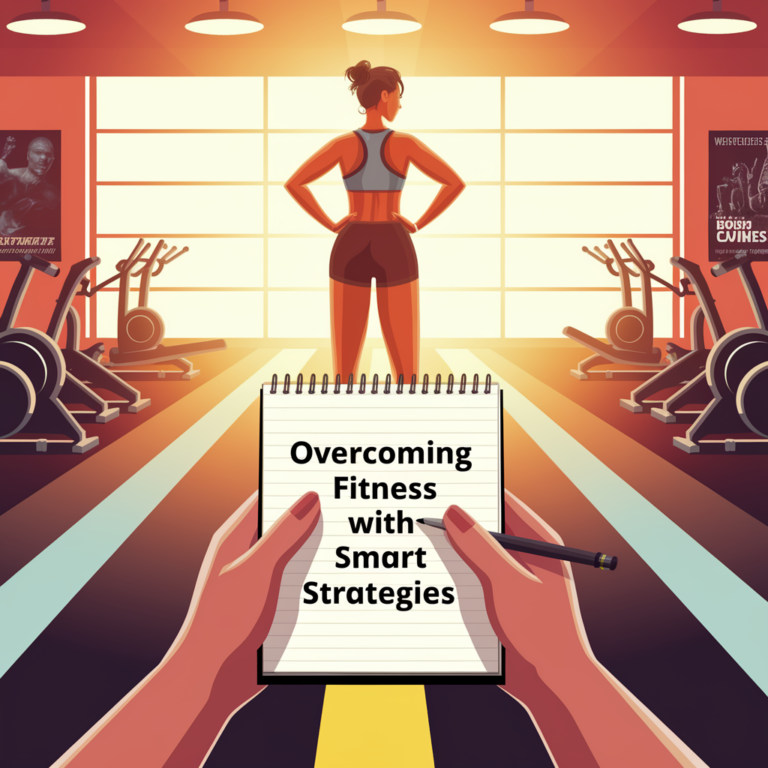The Connection Between Sports and Mental Health Awareness
In a world where the hustle and bustle of daily life can feel overwhelming, the importance of mental health has come to the forefront of public consciousness. A topic often overshadowed by physical health, mental well-being is gaining recognition as an essential component of overall health. What if I told you that one of the most effective ways to promote mental health awareness is right under our noses—on the playing fields, courts, and arenas of sports? Yes, sports.
The Power of Physical Activity
Engaging in sports is not just about competition or physical prowess; it’s also about mental resilience and emotional balance. Studies have shown that physical activity releases endorphins, the body’s natural mood lifters. I remember a time when I was knee-deep in deadlines, feeling the weight of the world on my shoulders. A quick jog around the park transformed my mindset—suddenly, the clouds seemed less daunting, and I could breathe again. This phenomenon isn’t unique to me; it’s a universal truth.
Research indicates that regular physical activity can significantly reduce symptoms of anxiety and depression. According to the American Psychological Association, even modest amounts of exercise can produce significant benefits. Just think about it: a brisk walk, a dance class, or a pick-up basketball game can be the antidote to a bad day.
Sports as a Community Builder
One of the most beautiful aspects of sports is its ability to create community. Whether it’s a neighborhood soccer match or a high-stakes championship game, the sense of belonging that comes from being part of a team can be invaluable for mental health. I fondly recall those summer evenings spent playing softball with friends—there was something about the camaraderie, the shared laughter, and even the missed catches that made everything feel right in the world.
On a larger scale, organizations like the Special Olympics not only promote physical activity but also foster inclusivity and acceptance. They provide an avenue for individuals with intellectual disabilities to showcase their abilities while building self-esteem and social skills. That sense of camaraderie, the high-fives, and the collective cheerleading can lift spirits and forge connections that last a lifetime.
The Role of Athletes as Advocates
In recent years, we’ve witnessed a paradigm shift in how athletes view their roles—not just as competitors but also as advocates for mental health awareness. Athletes like Kevin Love, a forward for the Cleveland Cavaliers, have bravely opened up about their struggles with anxiety and depression. Love’s candidness sparked conversations that resonated with fans and aspiring athletes alike. It struck me that when someone like Love shares his vulnerability, it gives permission for others to do the same.
Moreover, organizations such as the “Mental Health Coalition,” founded by prominent figures in sports, aim to destigmatize mental health issues across various platforms. By leveraging their influence and drawing attention to mental health, athletes are redefining what it means to be a role model. They are not just inspiring us to score points or hit home runs, but also to prioritize our mental well-being.
Understanding the Statistics
Before we dive deeper, it’s vital to acknowledge the statistics surrounding mental health within the sports community. According to the National Alliance on Mental Illness (NAMI), approximately 1 in 5 adults in the U.S. experience mental illness in a given year. In the realm of sports, this figure can be concerning. The pressures of performance, expectations from fans, and the relentless pursuit of excellence can weigh heavily on athletes.
To put things into perspective, a survey conducted by the International Olympic Committee revealed that around 10% to 30% of elite athletes experience mental health issues, such as anxiety and depression. These are not just numbers; they are individuals with dreams, aspirations, and struggles. And as much as we cheer for them on the field, we must also recognize their humanity off it.
The Hidden Struggles of Athletes
While the spotlight shines on their victories, the darker side of athletic life often remains hidden. Take, for instance, the late NBA player Kobe Bryant, whose work ethic and competitive spirit were legendary. However, in interviews, he shared the toll that stress and pressure took on his mental health. “It’s like being in a pressure cooker,” he once remarked. I can’t help but think about the countless athletes who feel similarly yet remain silent.
There’s a growing recognition of the need for mental health resources within sports organizations. Teams are beginning to hire sports psychologists and mental health professionals to ensure athletes have access to the support they need. Some franchises even encourage open discussions about mental health, creating an environment where athletes feel safe to express their feelings.
Breaking the Stigma
Despite the progress made, stigma surrounding mental health in sports persists. For years, athletes were taught to “tough it out”—a culture that often equated vulnerability with weakness. I recall a former coach who would say, “Shake it off; you’re tougher than that!” Well, it turns out that being tough doesn’t mean ignoring mental health struggles. It’s time we challenge these outdated notions.
Organizations like “Athletes for Hope” are working tirelessly to break down these barriers. They advocate for mental health awareness, emphasizing that seeking help is a sign of strength, not weakness. This shift in perspective is crucial; it’s about fostering a culture where athletes can share their experiences without fear of judgment.
Mindfulness and Mental Health in Sports
One approach gaining traction in the sports world is mindfulness. Athletes are increasingly turning to practices like meditation and yoga to maintain mental clarity and focus. I remember trying out a yoga class once—let’s just say my attempts at downward dog were more comedic than graceful. However, the sense of calm it brought was undeniable.
Mindfulness techniques can enhance an athlete’s performance while nurturing their mental well-being. For instance, a study published in the Journal of Sport and Exercise Psychology revealed that mindfulness training can lead to improved focus, reduced anxiety, and enhanced emotional regulation. When athletes can manage their minds as effectively as they manage their bodies, the results can be transformative.
The Future of Mental Health in Sports
As we look to the future, the intersection of sports and mental health awareness appears promising. With athletes stepping up as advocates and organizations prioritizing mental well-being, there’s hope for a more supportive environment. It’s about building a culture where mental health is valued as much as physical health—where a player can take a mental health day without fear of backlash.
Community initiatives are also on the rise. Local leagues and teams are recognizing the importance of mental health, integrating wellness programs and promoting open discussions. Imagine a community soccer league where players are encouraged to talk about their feelings, share their struggles, and support one another. It’s a beautiful vision that could become a reality.
Inspiring Change Through Education
Education is a critical component in this journey. By teaching young athletes about mental health, we can empower the next generation to prioritize their well-being. Schools and sports organizations are beginning to implement programs that educate kids on mental health, resilience, and the importance of seeking help. I’ve seen firsthand how knowledge can spark change—young athletes can become advocates for themselves and others.
Imagine a young soccer player, feeling the pressure to perform, but equipped with the tools to manage stress and anxiety. They could become a beacon of hope for their teammates, fostering an environment where mental health is openly discussed and prioritized. That’s the kind of change we need.
Conclusion: A Call to Action
The connection between sports and mental health awareness is not just a fleeting trend; it’s a fundamental shift in how we view well-being in the athletic world. As we cheer for our favorite teams and celebrate their victories, let’s not forget the human experiences behind those jerseys. The next time you watch a game, take a moment to acknowledge the mental battles being fought on and off the field.
It’s time for all of us—fans, athletes, coaches, and organizations—to embrace this connection and advocate for mental health awareness within the realm of sports. Let’s create a community where athletes can thrive, not only in their physical pursuits but also in their mental well-being. As we move forward, let’s champion the message that mental health matters, both in sports and in life. After all, a healthy mind breeds a healthy athlete.









